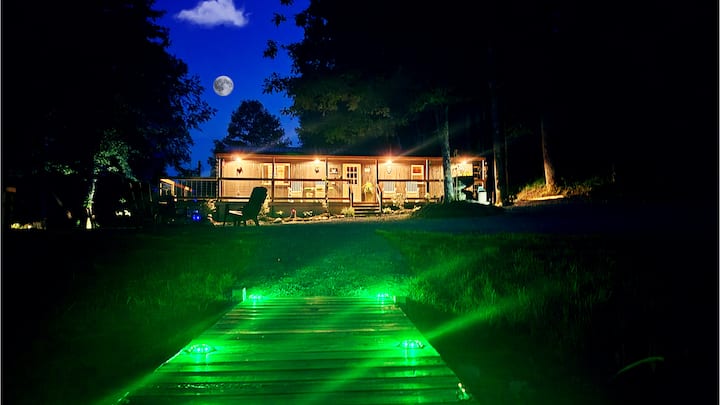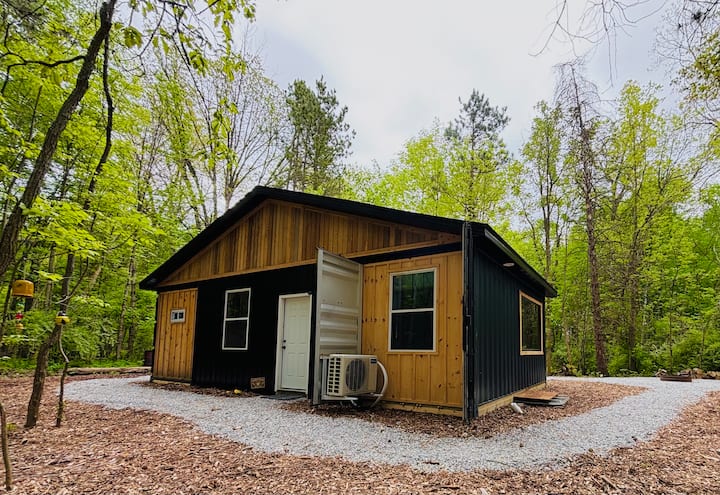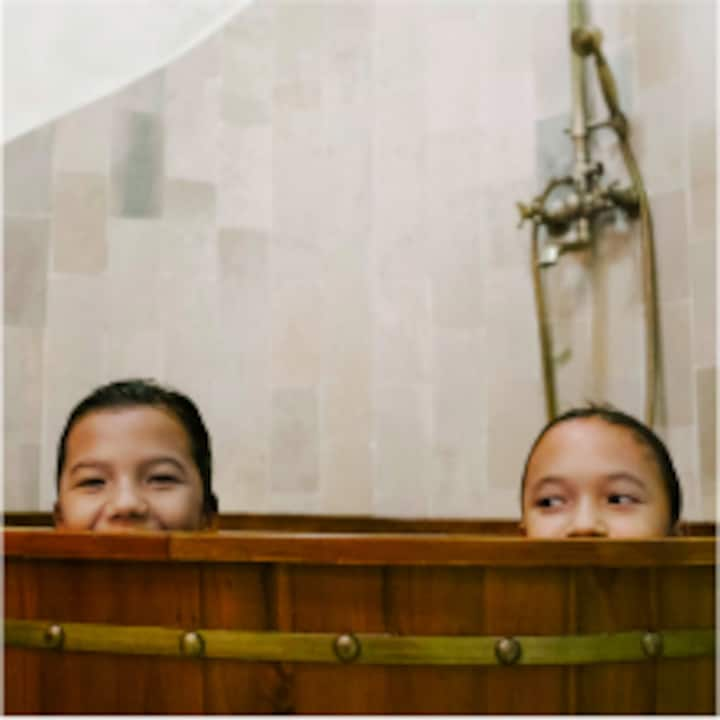Family travel hub > Traveling with young kids > Jet lag tips… travel
Family travel hub > Traveling with young kids > Jet lag tips… travel
Jet lag tips for long distance family travel
March 15, 2024 • 4 min read
Traveling the world with the kids is amazing. Foreign cultures and customs, incredible sights and sounds and foods, even summer in the winter (if you’re going tropical)! But one thing no one is writing home about is jet lag. So we collected our top tips to help your kids (and you) overcome jet lag so you can enjoy the time abroad.
Points of interest
- No matter when you land, try to keep the family awake until night time
- Keep naps short, even if everyone wants to sleep for much longer
- Sunlight is essential for fighting jet lag, so get up and out as much as possible

1. Switch up your routine
If you’re traveling to a destination with a multi-hour time zone change, consider helping your kids overcome jet lag by adjusting their sleep schedules a few days before your departure by putting them to bed earlier or later. This isn’t foolproof, though — kids that go to bed late may still wake early, and vice-versa.
2. Consider your travel direction
Most travel experts agree that traveling west is far easier than east when it comes to jet lag. While you likely won’t have any control over your travel direction, keep this in mind and give your family some extra jet lag recovery time for eastward travel.
3. Timing is everything
If you are traveling overseas, one of the best jet lag tips is to try to avoid arriving at the start of a new day in your destination. Unless you and your kids can sleep well on the plane, you will likely be exhausted by traveling, plus your natural circadian rhythm will be telling you it’s time to go to sleep, so there’s a good chance you’ll sleep through much of your first day or two. If this happens, though, don’t panic. Plan for some low-energy activities (such as an open-air bus, train, or boat tour) where you can all stay awake with little exertion until it’s time for sleep.
4. Bring food from home
Ensure your kids have a full meal in flight by bringing healthy foods you know they’ll be willing to eat. Eating well will help them fall asleep, which will help lessen the effects of jet lag.
5. Sleep on the plane, if you can
For many of us, it’s hard to get a good night’s sleep on a plane. But even a few hours of light snoozing is better than nothing. So try to get everyone to close their eyes and get in a few z’s once the lights dim. Luckily for kids, they are smaller and more able to pretzel themselves into a horizontal position in their seats. Just be sure to keep their seat belts fastened in case of any mid-flight turbulence.
6. Keep the lights off
Once you arrive, the real jet lag fun begins. Your kids might wake up in the night for a couple of days while their internal clocks adjust. What, exactly, are you supposed to do with your toddler when they’re up and ready to start the day at 3AM?? If everyone is up at the same time then it’s up to you if you want to give in to the lag and power through the rest of the day. But if some of the family is still sleeping and it’s close to morning, then best to keep the lights low and tell them they need to be very quiet, at least until the sun comes up.
7. Get a vacation rental
Speaking of middle-of-the night shenanigans, if and when the kids wake up and can’t get back to sleep, no one is going to get any more shut eye if everyone is sleeping in the same room. But, if you book a family-friendly vacation rental, you’ll have the space to send older kids out to hang in the common space, or take turns watching the little ones, so at least one adult is able to keep sleeping (and fully functioning the next day).

8. Use an alarm
If you’re napping during the day, set an alarm to wake yourself at a normal hour in your destination. This is key to not accidentally taking a marathon-nap and losing part of a day — which will keep the whole family stuck on the sleep-wake cycle from home.
9. Consider sleep aids
Melatonin can be very helpful, when taken correctly, to help kids and adults fall asleep. Ask your pediatrician beforehand for advice on giving it to kids.
10. Get outside
Sunlight, fresh air, and plenty of water will help reset everyone’s internal clocks. Not only is it more difficult to feel tired when you’re out in the middle of the day, but daylight is very effective at regulating your circadian rhythm and syncing it with your new surroundings.
11. Stick to your routine from home
Following your routine from home in the new setting will help your kids adapt to the change in time more quickly. If you usually go for walks, play at a park, or have quiet time at specific times of the day, do these according to your new local time.
12. Patience is key
Temper your expectations of how things should go and don’t over-schedule the first few days. Jet lag is hard to deal with for adults who understand why they feel bad, and kids moreso. Giving your kids room to feel moody while their systems reset will do wonders.
While no trip ever goes completely to plan, taking jet lag out of the equation (or at least minimizing its effects) will give your family the head start it needs for a great vacation. Good luck!

Up next...
How to fly with a baby without losing your cool (or your mind)
Flying with an infant means rethinking how to pack and plan.
Kid-friendly stays
1 of 1 pages

















